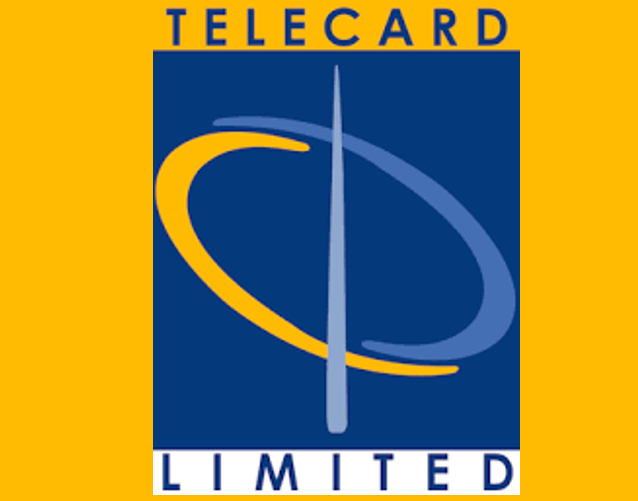LAHORE: Telecard Limited Wednesday announced that it had successfully restructured a loan amount, which was Rs736.2 million till March 31, 2021, as it heads for the listing of its subsidiary Supernet Limited on the Pakistan Stock Exchange (PSX).
In a notification to the Pakistan Stock Exchange, Telecard announced that its Term Finance Certificate (TFC) debt had been successfully restructured. “The restructuring term spreads over a period of 8 years with the first payment of principal starting from March 2022 and thereafter in equal quarterly instalments, with maturity in December 2028.”
Telecard further announced that “if the issuer is successfully able to execute Offer For Sale (OFS) of its wholly-owned subsidiary, Supernet Limited, then a prepayment of up to three principal quarterly installments equivalent to 15% of the total outstanding principal, that would fall due immediately after the OFS, would be paid through a single bullet payment from the proceeds of the said OFS subject to the condition that such proceeds would be not less than Rs250,000,000.”
On September 14 this year, Telecard officially announced to list Supernet Limited on the Pakistan Stock Exchange. Telecard announced that it would be offering 18,343,195 ordinary shares representing 15.5% post-IPO paid up capital through initial public offering. It was further announced that Supernet Limited will also be selling upto 11,242,604 ordinary shares, representing 9.5% post IPO paid-up capital through an offer for sale.
In an earlier notification to PSX, Telecard had said that it had the ability to pay off its outstanding loan of over Rs700 million “out of its own consolidated cash flows” under “restructured terms”.
“The company has been in discussions with its TFC holders for the said restructuring for the last few months. It has the support of its board and the TFC holders for the restructuring and is now in a position to quickly complete the formalities,” it had said in September.
The company had raised Rs 2.4 billion through TFC, but was only able to pay back Rs1.7 billion. The loan was previously restructured in January 2016 with an expectation that it’d be repaid in full by December 2020.
However, the company stated that the liability could not be charged because of challenging business circumstances faced by the company in that period. Telecard further stated that the IPO of Supernet was in line with its efforts to seek new revenue streams and create fiscal space.
It had been negotiating restructuring of the loan with creditors as investors had shown concerns over Telecard’s capacity to pay back the loan. The lingering loan would also cause a delay in the listing of its wholly-owned subsidiary Supernet.
Telecard Limited was incorporated in Pakistan in 1992 as a public limited company, launching public pay phone service. In 1995, the company did its initial public offering and acquired Supernet Limited in 2004 to provide internet services.
Supernet has recently made inroads into the cybersecurity business through another brand called Supernet Secure. Besides Supernet Secure, Supernet Limited has launched two other brands, Supernet Infra that provides power and surveillance solutions, and Supernet E-Solutions that provides SaaS-based business automation solutions, mobile applications, e-learning and contact center management solutions.
The revenues of Telecard have been falling consistently since 2010 when the company made Rs2.4 billion in revenue. Whereas by 2020, Telecard’s revenue had fallen to Rs1.1 billion, and overall losses were profound.
Telecard made a net loss of Rs91 million in 2017, 129 million in 2018, 60 million in 2019 and 109 million in 2020. On the other hand, the company that Telecard wants to consider listing separately has been gradually picking up on revenues since at least 2012, surpassing the revenue of Telecard Limited in 2015 and for the year 2020, the revenue generated by Supernet Limited was more than twice that of Telecard Limited, but was barely escaping losses.
It has been a roller-coaster ride so far for Supernet with only Rs0.313 million reported in net income in 2017, peaking to Rs80 million the next year, only to fall to Rs21 million in net profit for the year 2020. The company attributes the drop in net income to increased taxation.
In the recently announced financial results for the year ending June 2021, Telecard posted consolidated profit after tax of Rs506.5 million, compared to a net loss of Rs109 million during the same period last year.
Since the beginning of 2018, Telecard Limited’s share price has been hovering around the Rs1-2 range. However, in February this year, the Telecard Share price surged beyond Rs3 for the first time since 2018, with volumes traded reaching millions of shares. Since the beginning of February till May 5, the share price surged to go beyond Rs15 and volumes traded in millions.
Twice, the PSX has sought an explanation from the company on the unexplained. Soon after the February surge, Telecard wrote to the PSX conveying its ignorance of what was driving the share price. On April 26, the Pakistan Stock Exchange again sent a letter to Telecard management to explain what was causing an unusual increase in share price and volumes.
Telecard said that the management of the company had participated in a Virtual Technology Investors Conference in the beginning of April in which the company showcased its capabilities. It was here, according to an analyst, that the company showcased Supernet as doing better than Telecard, and gave the initial hint that Supernet might be listed separately.
The share price has again taken a dip, closing at Rs16.73 on October 20, which is a fall of 31% since September 14 when Telecard announced its intention to list Supernet Limited on the PSX.

























Interesting Article
Enjoyed To Read This Article
Amazing Information